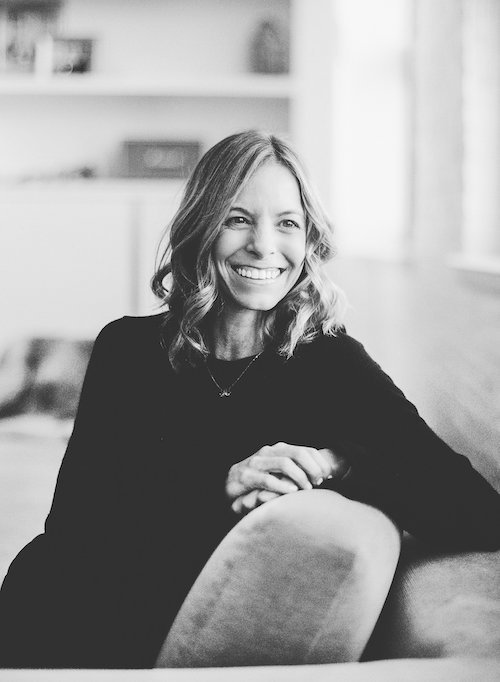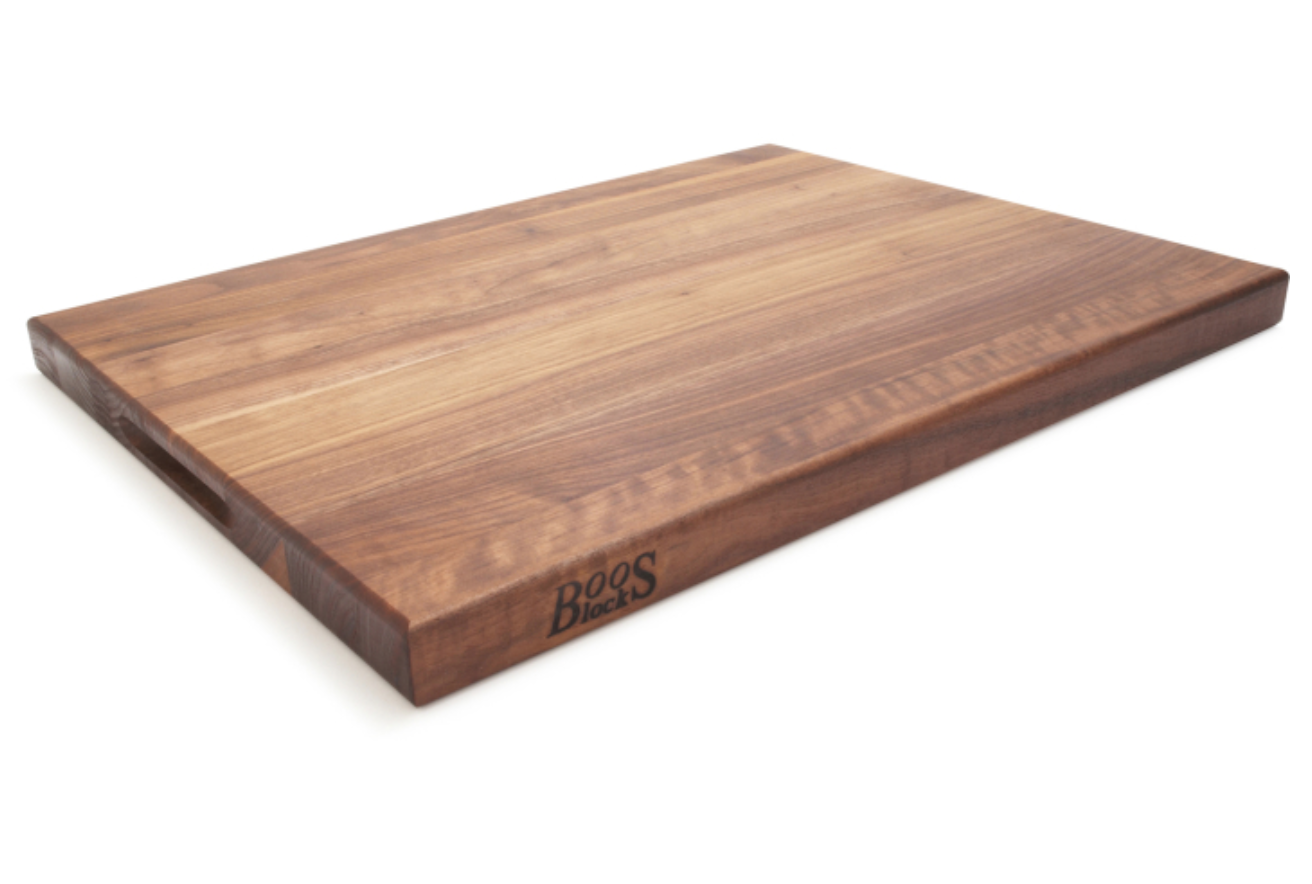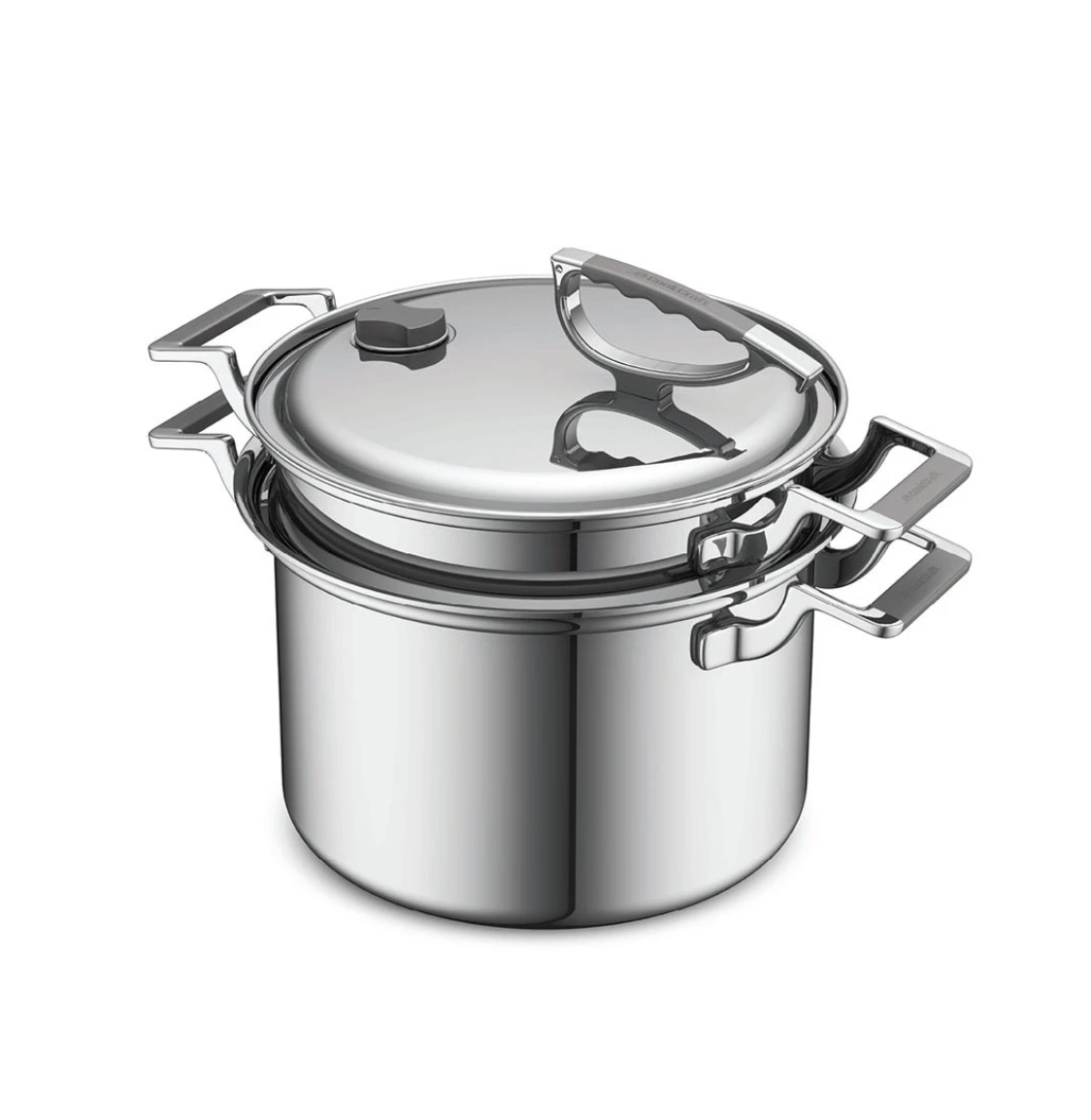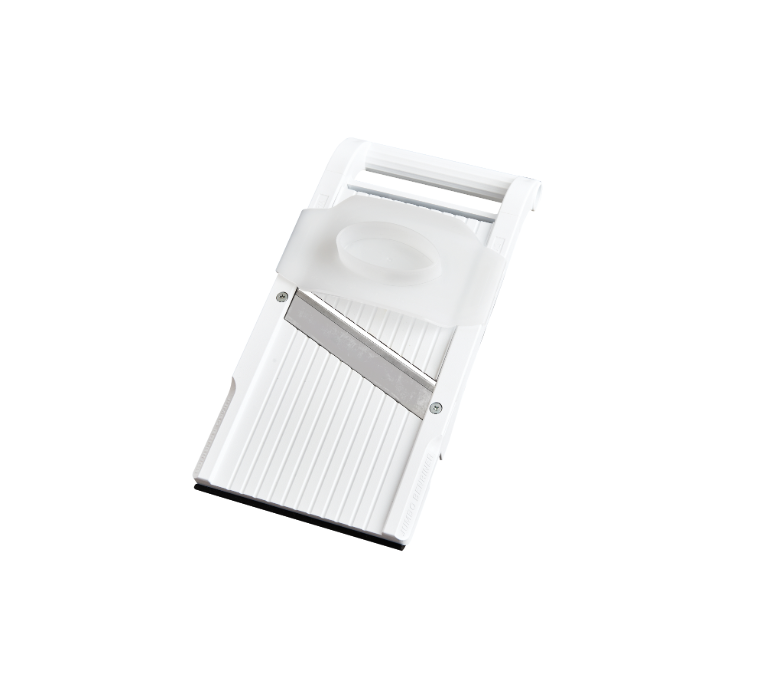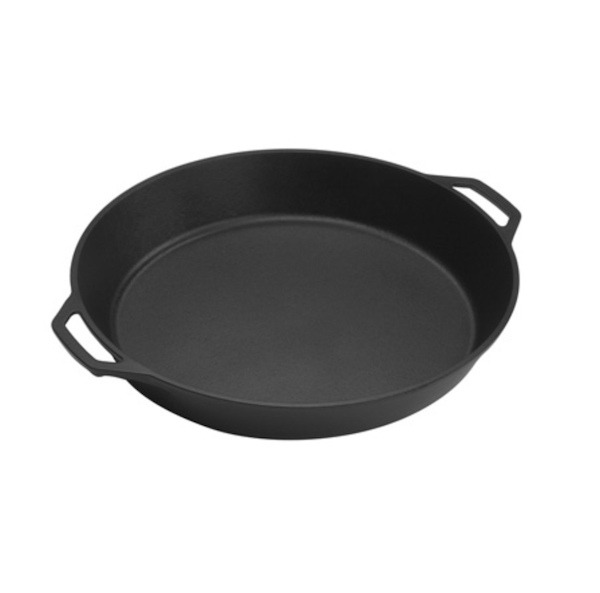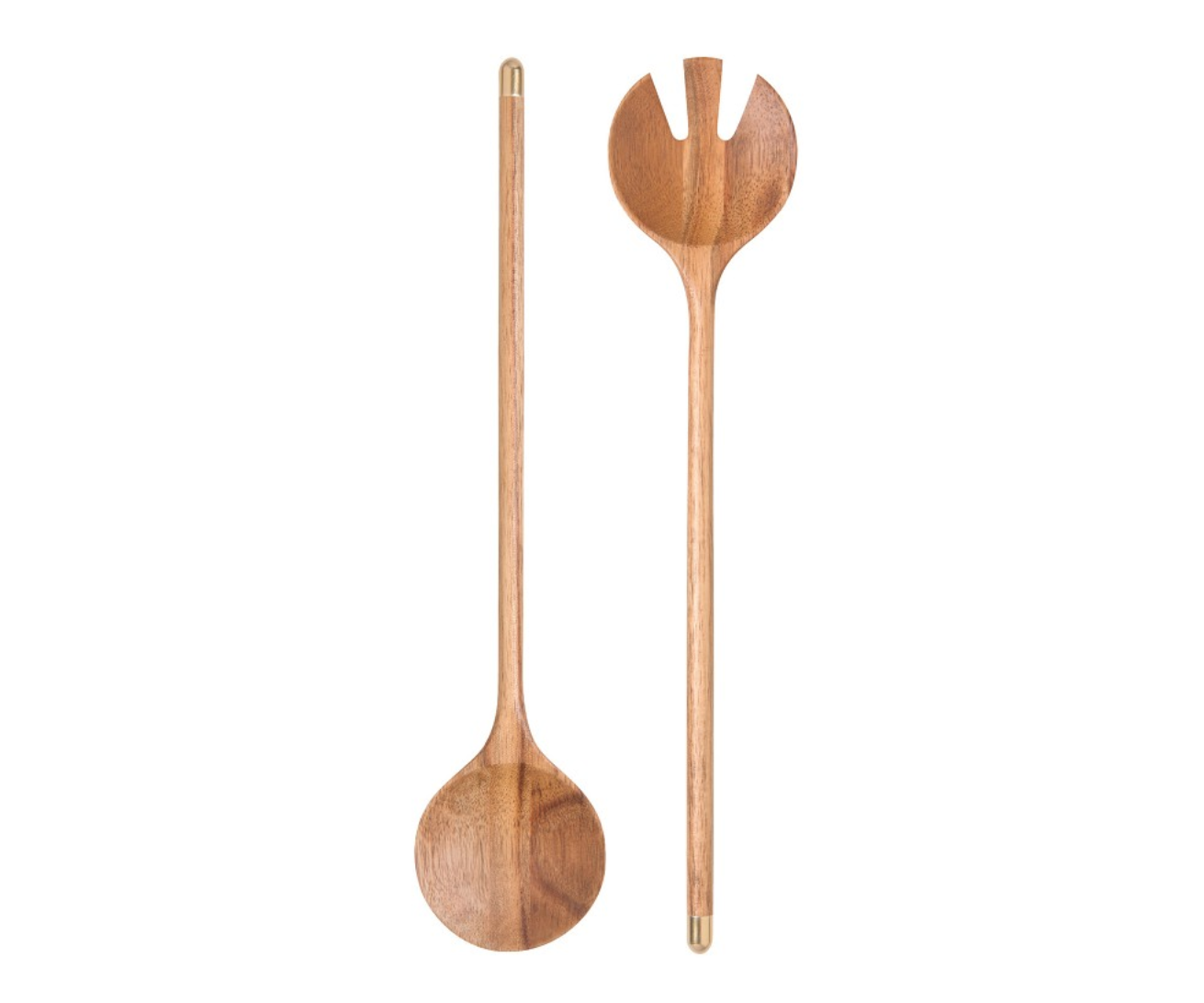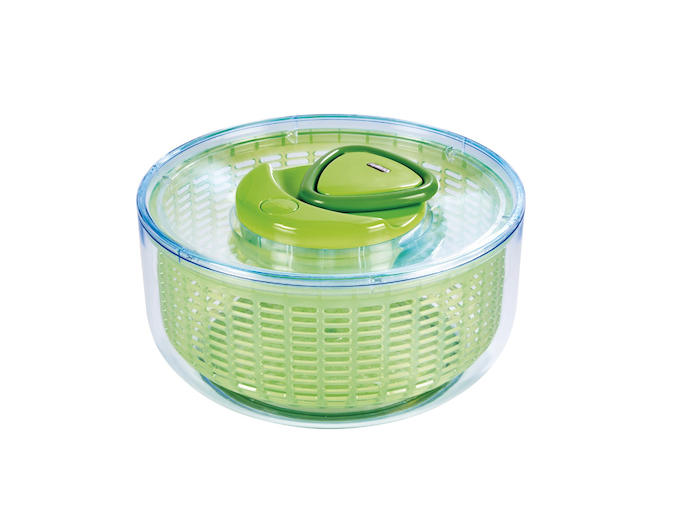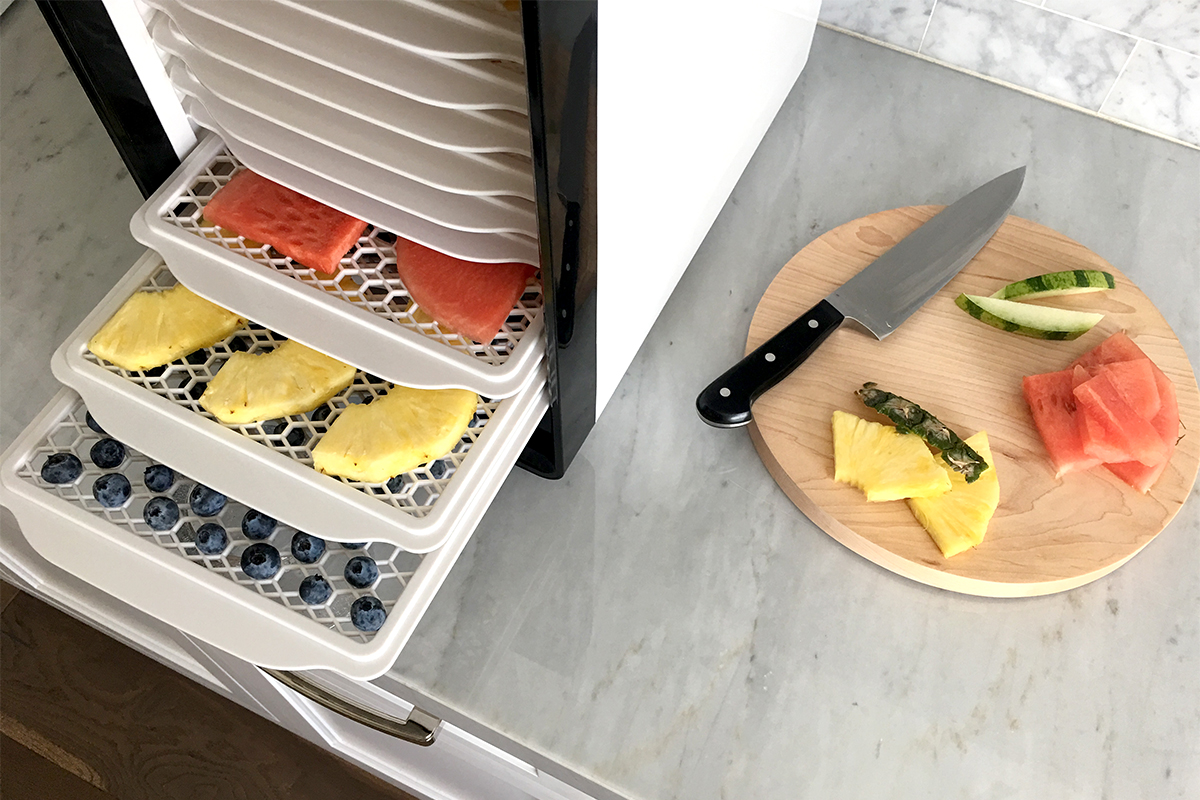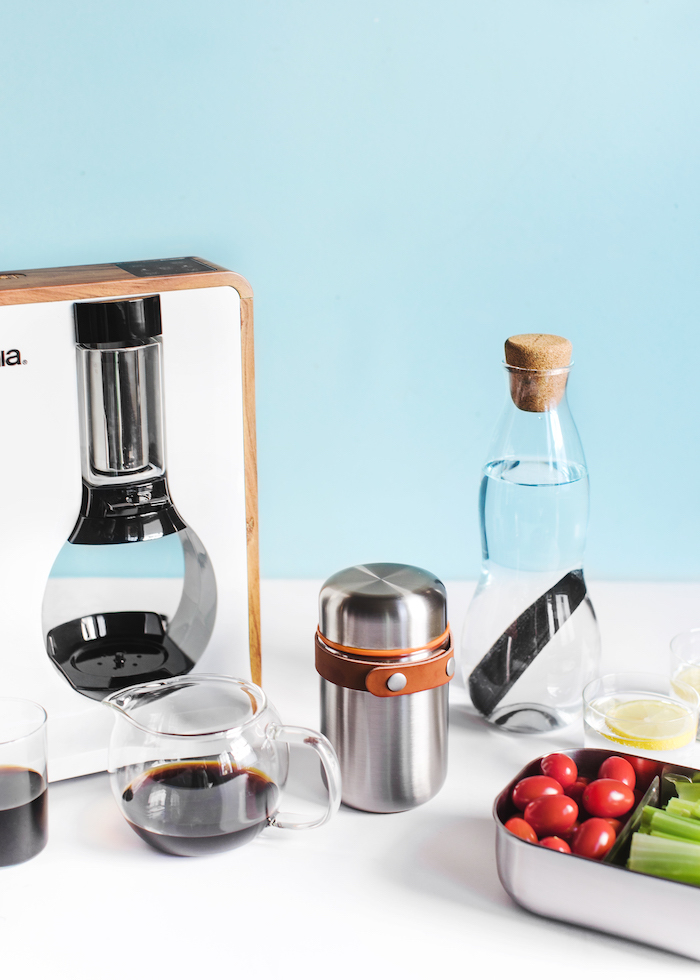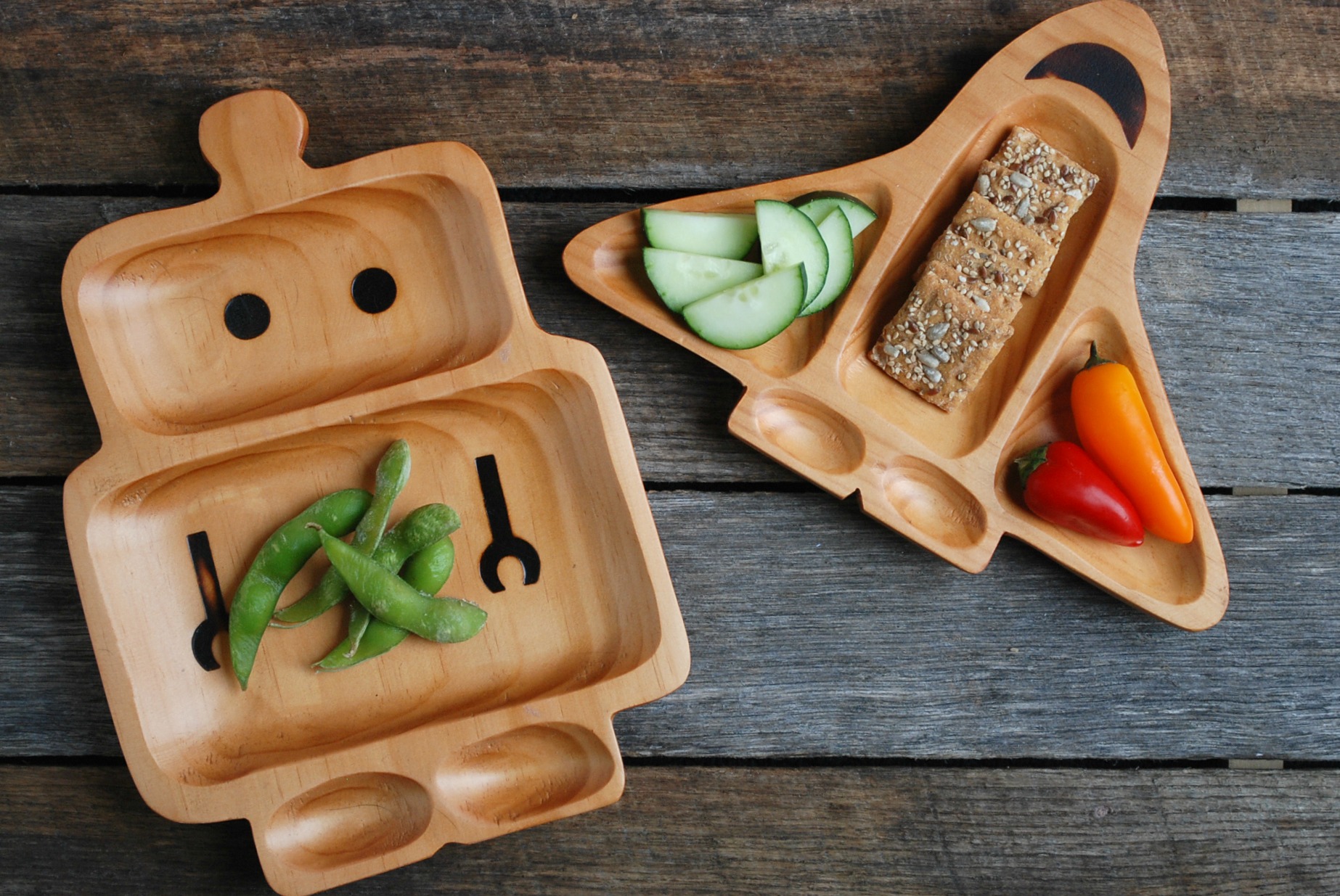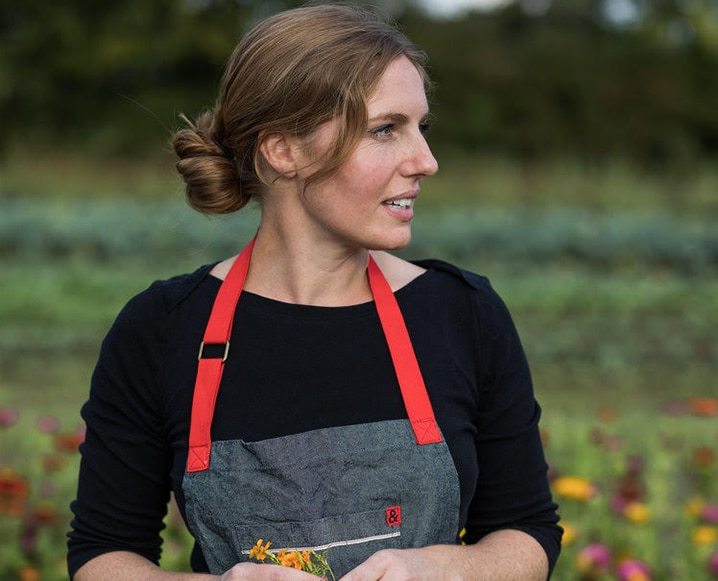
The incredibly talented Midwestern chef, farmer, and now author, has earned rave reviews for her debut cookbook Ruffage: A Practical Guide To Vegetables. It’s no wonder since this thick volume is basically the essential (and arguably only) guide you need for preparing any vegetable you can think of. Ruffage is as beautiful as it is practical and as aspirational as it is attainable. We asked our own Jeanelle Olsen to sit down with Abra to talk about her journey that has all of us fantasizing about growing our own vegetables, throwing dinner parties and leading a plant-based lifestyle.
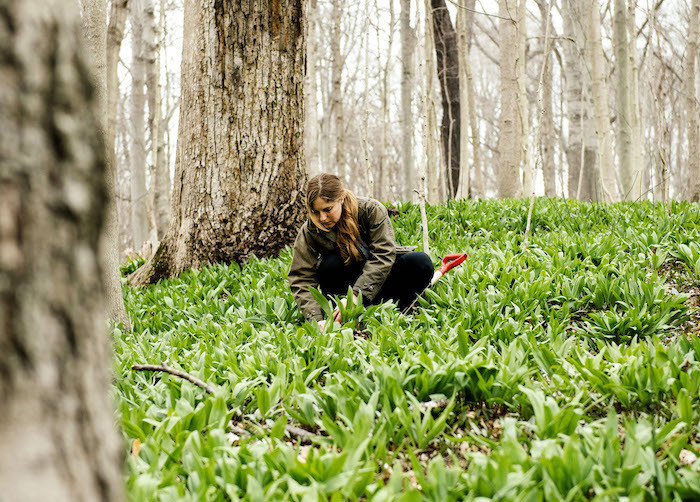
Chef Abra Berens is washing dishes when I walk up to the farmhouse at Granor Farm in Three Oaks, Michigan, on a sunny summer morning.
She’s just come from a farm staff meeting and before we talk, she sits down to answer a quick email. Granor gets a lot of them this time of year, she explains: people are realizing that warm temperatures are coming to an end and want to maximize whatever’s left by attending one of Granor’s epic farm dinners. She’s thrilled by the dinners’ popularity and totally gets the whole end-of-summer-FOMO thing, but also confesses fall is one of her favorite seasons to cook through.
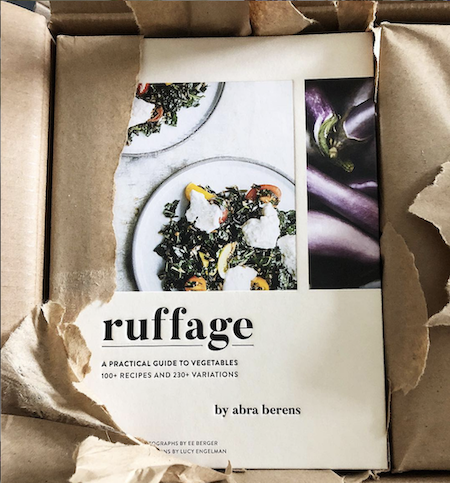
You wouldn’t know it from her open, friendly demeanor, but Berens is juggling a lot. She’s just finished much of her book tour for Ruffage: A Practical Guide to Vegetables, a gorgeous and, indeed, deeply practical tome that found itself on a dizzying number of top cookbook lists this spring and summer. She’s one of just six full-time staff members at Granor, so in addition to the event and menu planning for the dinners, she’s also necessarily a jack-of-all-trades on the farm, frequently helping with harvesting, programming, and other administrative bits that often get left out of the romanticized chef-farmer narrative we like to dream about.
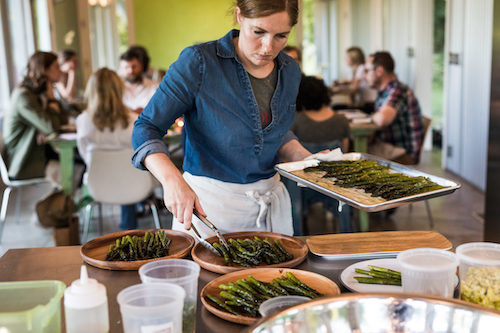
And yet, despite all the travel, the meetings, the emails, and other sometimes isolating aspects of modern life, our conversation seems to keep coming back to the idea of community and home. The way food brings families and communities together, and the way the book, hopefully, has a part in teaching folks how to do that more easily and sustainably.
Ruffage is, true to its name, about vegetables and how to use them. And these days, when we’re all deeply aware that eating more plants will keep us and the planet here at least a while longer, people may not need much urging to support a guide for not only using them, but using all the parts of them, making them taste incredible, and minimizing food waste. Instead of organizing the book by soups, salads, mains, sauces, dessert, and so on, or even by season, another increasingly popular way to organize a produce-heavy cookbook, Berens felt strongly about structuring the book around the vegetables themselves. So, carrots have their own chapter. As does celery. And parsnips, radishes, and turnips. To some, the list may read a bit, well, sensible. Responsible. These are the things you buy when you’re feeling virtuous and then you forget about them in the crisper. Right? Wrong.
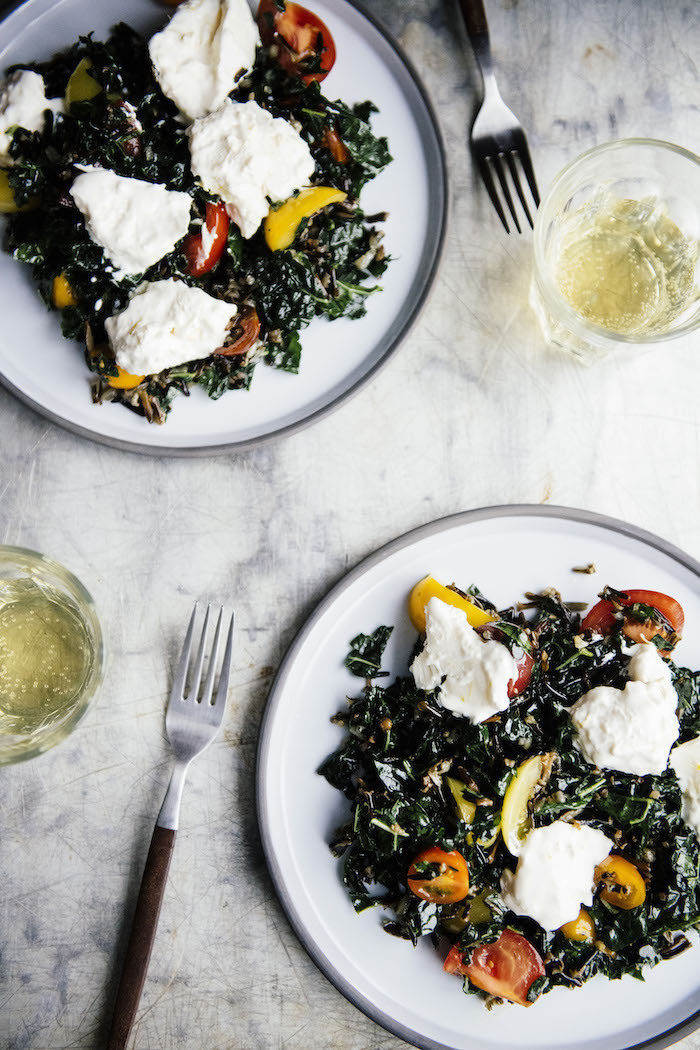
Whatever poetry these vegetables may lack in the eyes of some, Berens provides more than enough of in beautiful, sometimes funny, sometimes moving, always frank introductory essays for each chapter. The beginning of the broccoli chapter brought me and, as I later learned, several other friends and cookbook lovers to tears. I snorted reading the essay before the kohlrabi chapter, in which Berens thoroughly explains the many benefits of joining a CSA (community-supported agriculture) and cheekily notes that we may not always be familiar with what comes in the box: “What the hell is a kohlrabi, and what do you do with that alien in your bag?” In these chapters, she talks authoritatively as a chef and a former farmer about the ways we as consumers can help change the agricultural landscape to support farming communities.
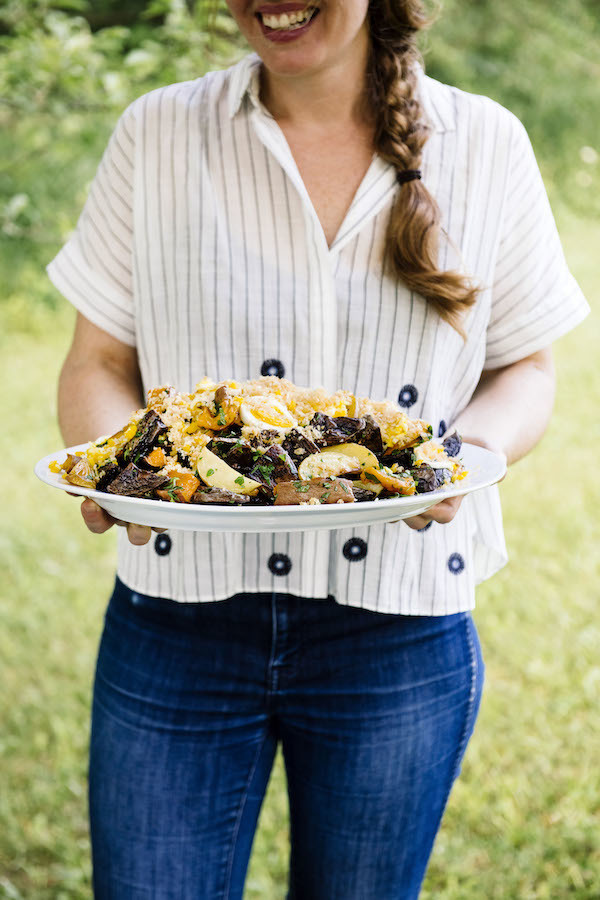
Berens credits her family’s garden and her mom’s cooking skills for introducing her to a wide array of flavors and preparations. “I’m fairly confident my mom was the only person in town that had, like, a countertop rotisserie and was spit-roasting woodcock on a regular basis.” Nothing was fancy, everything was practical, but it tasted really good. Except maybe the period when her mom put a moratorium on buying and eating domesticated meat until they worked through all the venison and other game in their deep freezer (her dad was a hunter). Things became a bit… repetitive. “It was like, can we please just have chicken?” she laughs.
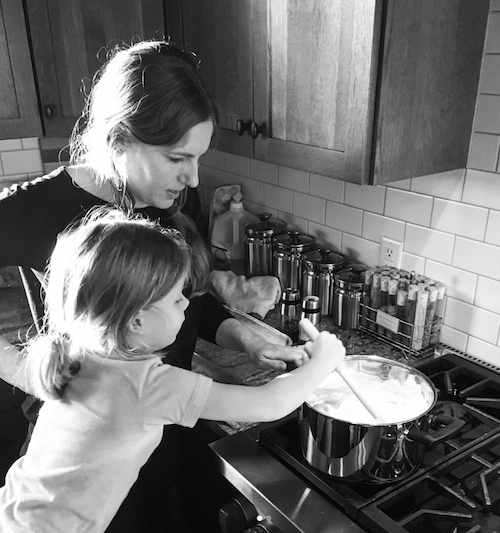
Her mother passed away in 2003, something Berens talks about a little in the book. (Really, you have to read the broccoli chapter.) Again she recalls the idea of community, this time the way family and friends rallied around Berens, her sisters, and her dad to support them in their grief. Food became, she says, “a way to bind our wounds.” She remembers someone asking her dad what they could do to help. The first part of his response might not be surprising: he asked if they could bring over a meal. The second part, though, speaks profoundly to the power of community and fellowship echoed in the book: Berens’s dad asked people to stay and eat with them. “When people are grieving,” Berens says, “nobody wants to intrude, but you end up feeling kind of isolated.” Writing Ruffage, then, was another way to not only honor her mom’s influence but also to honor the role that food played — and still plays — in the way her family comes together.
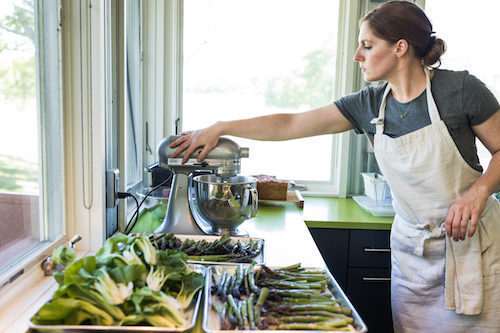
While on tour, Berens was blown away by the number of people who came out to events at local bookstores and other community spaces. “I’m not a celebrity chef, I don’t have a broad platform,” she says. In a way, she says she didn’t expect anyone to care about the book, or at least not to the extent that they’d take time out of their busy lives to come to an event. For example, despite not really knowing anyone in Seattle, her event at Book Larder was completely full. Berens was astonished. “I was like, how is this room full of people who just happen to be interested and who care?” She realized the magic was all in the community the shop owners had cultivated over the years and the way they, and so many other stops on the tour, activated those communities to contribute to the success of the book.
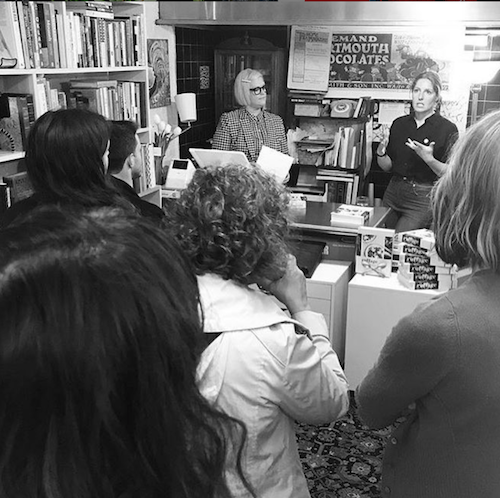
In New York, Berens was similarly awestruck when Jody Williams and Rita Sodi, the legendary chefs and co-owners of Via Carota, hosted a dinner featuring recipes from Ruffage. “There’s no reason for these women to host me for dinner! They don’t need anything from me. They must have liked the book, and they’re looking out for other women authors. It was truly amazing to feel that.” Throughout the tour, Berens was blown away by the support of folks, particularly women, in the food industry. As a Midwesterner myself I also remind her, though, that at some point we might put aside our regional aw-shucks humility and allow that maybe the book is just really good.
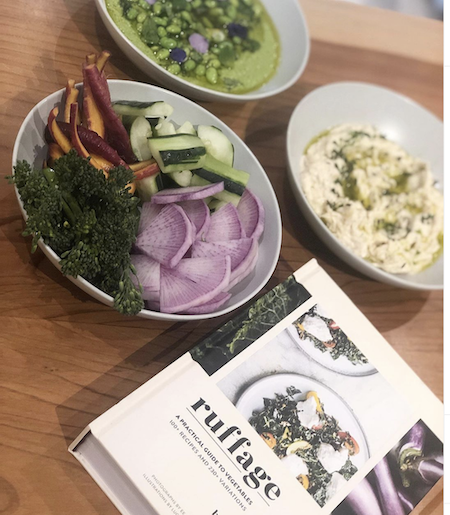
When I ask if she’d ever do another book, Berens says it would be an honor. She envisions something like Ruffage, but for fruit, or maybe grains and legumes. In the meantime, she’s got a small stretch of a book tour to finish up in the fall, mostly local stops. She also hopes to slowly expand the experiential offerings at Granor, including more farm dinners and perhaps someday establishing the sort of teaching kitchen she says she’s benefited from in her own career. What probably won’t change is the way Berens weaves together her knack for combining flavors and making the most of what’s growing and doing it in a way that sustains home cooks, their families, and communities.
Abra shares 5 recipes from Ruffage with The Inspired Home that you need to know, and shares her list of kitchen tool essentials for a veg-centric kitchen.

